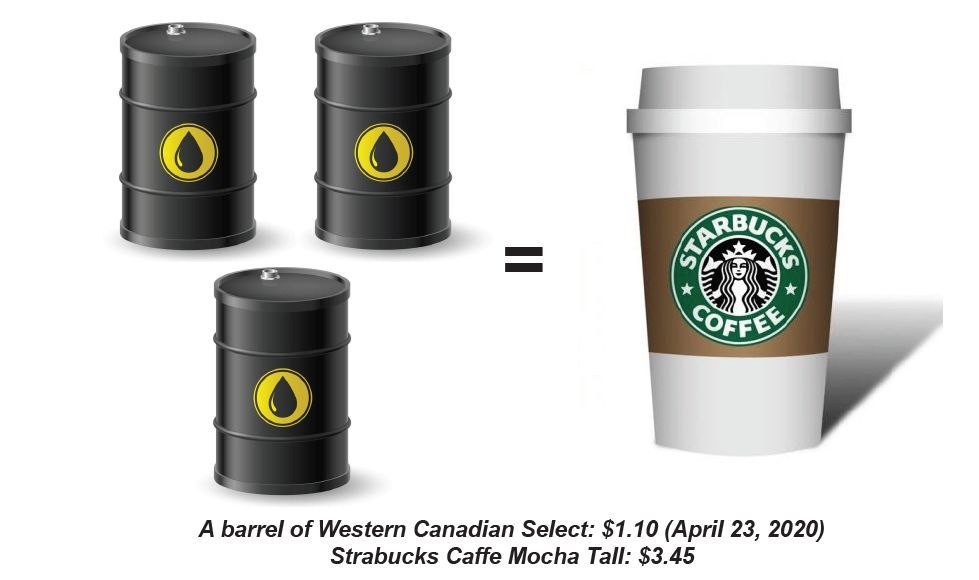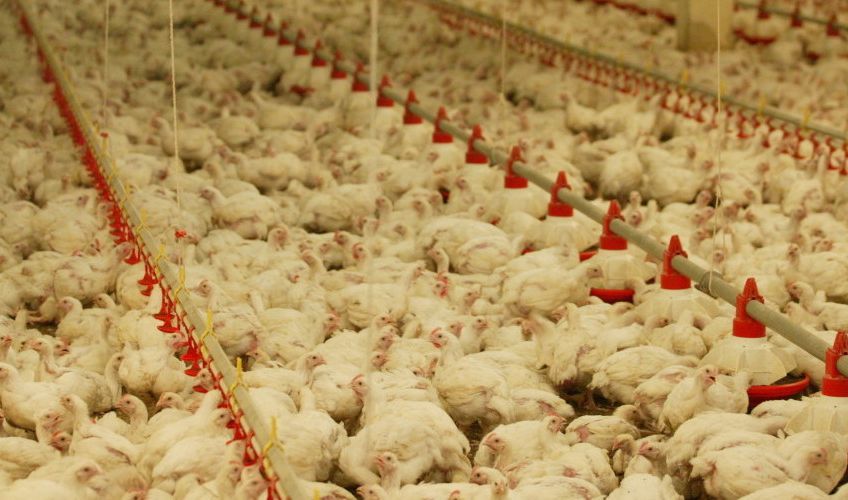Alberta is, once again, being subjected to neoliberal policies that threaten our livelihoods, our economy and the future of our province. Led by the most recent iteration of conservative coalitions, the United Conservative Party (UCP) is a blend of the misnamed Progressive Conservative Association of Alberta, and the short-lived right-wing populist Wild Rose Party. In responding to the COVID-19 crisis it has, unsurprisingly, been politics as usual here in Alberta, and the working class is reeling.
The first presumptive case of COVID-19 in Alberta was on March 5, a woman who had recently returned to the Calgary region after being on a Grand Princess Cruise ship. Additional cases were soon linked to this same source. By March 8, the Alberta public health laboratory was administering around 1,000 COVID-19 tests per day, climbing up to 3,000 per day by March 26. According to the provincial government’s prognosis, the crisis will peak in mid-May and could see approximately 800,000 total cases by the end of the summer, and anywhere from 400 to 3,100 deaths. Alberta currently has over 4,000 confirmed cases, making it the third-worst hit province in Canada, behind Québec and Ontario.
Beyond the horrors of lost life, 254,000 Albertans have had their incomes reduced to zero in March alone and the majority of small businesses have closed their doors, many of which will struggle to reopen. In response to this socio-economic calamity, the UCP government finally suspended tenant evictions until May, froze rent increases, and banned landlord’s charging late fees for three months. . However, without meaningful rent forgiveness, this offers little reprieve for a working-class with no economic security, and ever-dwindling social securities.
In addressing COVID-19, the UCP has also predictably diverted money from key social programs, rather than from the corporate cabal that has helped position us on the razor’s edge of stability. For instance, $128 million in education funding cuts, endangering the livelihoods of educational assistants, substitute teachers and other service providers, and a loss of around 26,000 jobs. While Education Minister Adriana LaGrange assured the public that these funds were not being used due to school closures, many school boards responded with chagrin, as LaGrange had promised them weeks prior that their budgets would not be altered. This funding cut was notably problematic, as the UCP had already frozen the education budget prior to the pandemic, leaving many schools struggling to operate.
This incursion upon our education system came on the heels of a recent assault on our health care network, with the cancelling of viable funding contracts with our provinces’ doctors. As many doctors assert, this was a “betrayal of a process that they entered into in good faith,” with other policy advisors warning that these draconian changes pose a real risk to the supply and quality of health care in Alberta. Omer Moghrabi, the Mayor of Lac La Biche County, has aptly noted that a global pandemic is “not the time to be fighting with your medical services.” In response, UCP leader Jason Kenney has assured Albertans that funding changes won’t impact doctors’ decisions or abilities to practice. Yet, in contrast to this claim, Kenney is often the first to claim that any increase in taxes or legislation on one of world’s largest polluters, the tar sands, will damage the province’s economy. Couple this with the UCP’s disregard for contract arbitration with nurses (some 700 positions have been lost under the UCP government), and continued holdout on wage increases for health and education workers, the UCP is showing where its loyalties and concerns lie.
To add insult to this public sector injury, Kenney established an Economic Recovery Council, “to provide insight and expert advice on how to protect jobs during the economic crisis stemming from the COVID-19 pandemic and the recent collapse in energy prices.” This has been little more than the command centre for an all-out assault upon the public sector, peddling the tired nostrum of trickle down economics, and following a very predictable neoliberal trajectory of cuts, deregulation and privatization. There would be little surprise to learn that it is comprised primarily of industry cronies and right wing “pundits.”
University of Calgary professor Jack Mintz heads up the council. In addition to serving on the board of Imperial Oil, he’s most famous for erroneously claiming that a one percent increase in corporate taxes directly translates to 9,000 lost jobs, and that ethnic diversity makes a country weaker. Other such experts on the council include bankers, politicians, property magnates and key businessmen such as Stephen Harper, Chris Fowler, Peter Kiss and Bob Dhillon. Clearly this rag-tag group of bourgeois capitalists will allow for the greatest diversity of economic opinion and concern. Indeed, one of Mintz’s first regressive policy prescriptions was to introduce a 13% harmonized sales tax, to be off-set by significant income tax cuts for large corporations and wealthy individuals. How much of these policies will Albertans be willing to endure?
These cuts and policy decisions are ostensibly aimed at balancing the Alberta budget. However, this becomes difficult to believe when considering that one of Kenney’s first acts as premier was a $4.7-billion giveaway in corporate tax cuts to the largest and most profitable fossil-fuel companies, amongst others. Indeed, his entire budget is intimately tied to the oil and gas sector. This is extremely troubling given the current energy context.
Due to COVID-19, demand for oil has plummeted at the same time as oil producers have increased production, in a battle for market share. This has driven tar sands oil to record lows. On April 20, the price of oil went negative, with holders of West Texas Intermediate paying $37.63 a barrel for someone to take the oil. This means that oil producers are forced to pay buyers to take the oil barrels they are unable to store. West Canadian Select, Alberta oil, has been sold at less than $10 a barrel, at times down to less than a $1, over the last month, less than the cost of production, transportation and storage.
Kenney’s budget was based on a wildly exaggerated assumed $58 a barrel for oil. As the National Post noted, the budget “is so dependent on resource revenue that the province estimates that $355 million gets sucked out of the provincial treasury for every dollar oil drops below the recent budget’s estimate of $58/barrel.” Alberta is clearly being driven to the precipice of a fiscal cliff, with little options to turn back.
Despite this reality, Kenney refuses to rewrite the budget, and in taking a momentous step forward for disaster capitalism, recently invested US $1.1 billion into the Trans Canada Keystone XL Pipeline, in addition to offering a fully guaranteed US $6 billion line of credit for project completion. This is money that could easily have positioned Alberta at the forefront of a burgeoning renewable energy economy. Given the increasing rate of global divestment, oil sector automation and renewable energy innovation, together with the general inefficiencies of tar sands oil, this does not bode well for our province.
To make matters worse, amidst all of this economic uncertainty, Kenney has refused to fully defund his disastrous $30 million “Energy War Room,” which is supposedly aimed at defending the Tar Sands from misinformation. In reality, this has been nothing more than one of Alberta’s most embarrassing boondoggles to date. The war room kicked off with a copyright issue spurred by its apparent logo theft; it was then forced to issue a public apology to The New York Times, has refused to divulge spending and avoided being subject to The Freedom of Information and Protection of Privacy Act by structuring itself as a private entity, funded mainly by the province.
The Alberta budget projected a deficit of $6.8 billion on revenues of $50 billion, prior to the crash in oil prices. Debt is now expected to rise to almost $77 billion by spring 2021, and to almost $88 billion by 2023. Given the financial challenges and leadership concerns Albertans currently face, this will conceivably be much worse.
In the interest of corporate profits, the UCP has passed financial burdens onto future generations and the working class with every chance they get. They cut corporate taxes in a province with one of the lowest national tax rates. At the same time, they surreptitiously increased the tax burden upon the working class by forcing Albertans to pay more to register their cars and campers, more for home and car insurance, electricity, school fees, and even visits to provincial museums. Students will see their tuition costs skyrocket by 21% over three years, and their parents won’t be able to apply those costs against their taxes any longer. 46,000 older Albertans will be kicked off the Seniors Drug Benefit Program, and income testing will be introduced for those who stay through that first purge. This is made up of folks on fixed incomes that will have to find money elsewhere to pay for the medication they need to survive. Severely handicapped Albertans lost $30 a month in benefits, rising to $120 a month by 2023. As many as 165,000 families living just above the poverty line will lose part of their child benefits, and 55,000 families will lose them entirely. Yet, despite this, the UCP finds revenue to facilitate corporate handouts to oil and gas.
COVID-19 has helped to expose the fragility of the capitalist economy. When capitalism makes the public carry the losses and corporations grab the gains it creates an economic structure that begins to crack with the slightest of pressures. When capitalism subjects the building blocks of life to a market economy and turns into a commodity humanity’s very survival, then social existence becomes threatened by individual pursuit of profit (i.e., renters without secure income being forced to pay landlords being forced to pay banks that serve shareholders). We say enough! Socialist Alternative realizes that capitalism is incapable of providing a society where the working class and its allies, in Canada and internationally, can have a good quality of life on a healthy planet. Therefore, we work both for reforms now and for a mass democratic socialist transformation of society!




